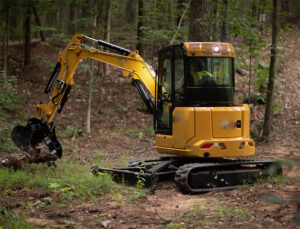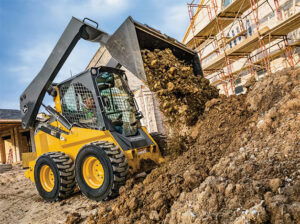The export and international co-operation of mini excavators is a dynamic and promising area in the global market dynamics. With the global expansion of infrastructure construction needs, mini excavators have been widely used around the world due to their efficiency and flexibility, and have become an important tool for driving the economic development of countries. This article explores the dynamics of mini excavators in the international market and how co-operative models are contributing to their development globally.
Against the backdrop of globalisation and accelerated infrastructure development and urbanisation, there is a growing demand for mini excavators, especially in emerging markets and developing countries. These machines have become indispensable tools as they are suitable for construction projects of various terrains and sizes, including road construction, farmland rehabilitation, and building foundation works. With technological advancements and cost reductions, the performance of mini excavators has been improving and prices have become more affordable, further fuelling market demand.
Exports of mini excavators have become one of the key drivers of economic growth in many countries. Asia, Africa and Latin America are the main export destinations, where infrastructure construction and industrialisation are in a rapid development stage. Countries such as China, Japan and South Korea are leading the international market with their advanced manufacturing technologies and cost-effective products. By optimising supply chain management and improving product quality and service levels, mini excavator manufacturers in these countries have successfully entered the global market and established extensive partnerships.
International cooperation plays a key role in the development of mini excavators. Through technical exchanges, resource sharing and joint research and development, manufacturers have not only promoted the upgrading of products, but also the formulation and improvement of industry standards. For example, co-operation between multinational companies can achieve a win-win situation by making use of their respective advantageous resources, such as the large-scale demand in the Chinese market, the technical R&D capability in Europe, and the marketing network in the United States. In addition, by establishing international alliances or participating in global sourcing platforms, companies are able to reduce costs, improve efficiency and further expand their market share.
Although the mini excavator market shows great potential, it also faces some challenges, such as international trade barriers, exchange rate fluctuations, and unstable supply chains. To cope with these challenges, companies need to strengthen risk management, explore diversified markets, and improve competitiveness through technological innovation. Meanwhile, the requirements of environmental protection and sustainable development are driving the industry towards greener and smarter development, and mini excavator manufacturers need to keep adapting to new technologies, such as electrification and intelligence, in order to meet future market demands.
In summary, the export and international cooperation of mini excavators is an important part of the global market dynamics, which not only reflects the trend of global economic integration, but also provides huge development opportunities for participating countries. In the face of both challenges and opportunities, through deepening cooperation, technological innovation and adapting to market demand, the mini excavator industry is expected to continue to prosper globally and contribute more to global infrastructure construction.






